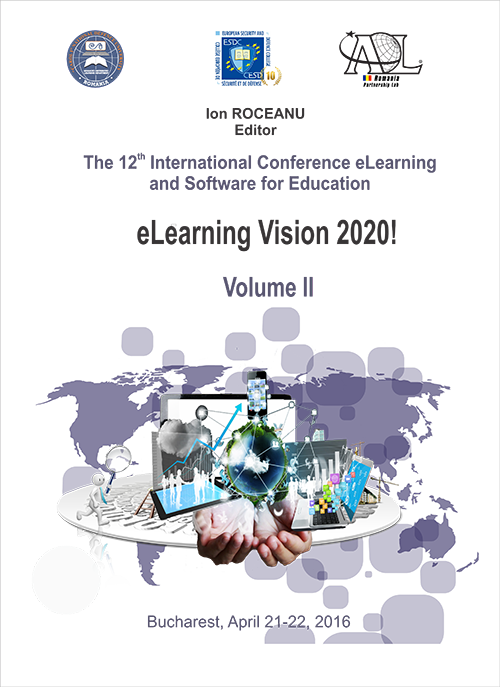ENGLISH LEARNING EVOLUTION FROM CLASSICAL TEACHING METHODS TO THE DIGITAL AGE OF VIDEO GAMES
ENGLISH LEARNING EVOLUTION FROM CLASSICAL TEACHING METHODS TO THE DIGITAL AGE OF VIDEO GAMES
Author(s): Anca Silvia Rusu BodeaSubject(s): Foreign languages learning, Media studies, ICT Information and Communications Technologies, Sociology of Education
Published by: Carol I National Defence University Publishing House
Keywords: e-learning; video games; language acquisition;
Summary/Abstract: This paper outlines how teaching English as second language strategies have developed over time, making place for game-based learning methods containing designed features, related to language acquisition. The study is a qualitative analysis of a number of articles concerning the topic and a focus group data collection in which the subjects were asked about in what way games create situations when engagement determine gamers to join communicational contexts with other players, in order to solve problems, gaining metacognitive and metalinguistic skills. The association of words with images, actions, experience and dialogue help the subject to deduct the meaning, growing the pedagogical potential of digital games .Findings of this study show that according to the main characteristics of the played videogames, subjects may acquire vocabulary related to rules, goals, competition, narrative constructors by placing the learner in the middle of the learning and teaching process. Games may offer intuitive feel for language and put native speakers face to face with learners, explaining them the tasks and problems through language usage, making this type of social interconnectedness able to emphasize that, gaming environments not only use the traditional and conventional pedagogy of teaching English, but also transform the language into a tool required to solve an issue. Even though gaming represents a social activity that reduces anxiety and creates informal atmosphere as a pedagogical tool it has not been yet fully understood and its affordances and limitations are being tested.
Journal: Conference proceedings of »eLearning and Software for Education« (eLSE)
- Issue Year: 12/2016
- Issue No: 02
- Page Range: 24-27
- Page Count: 4
- Language: English

